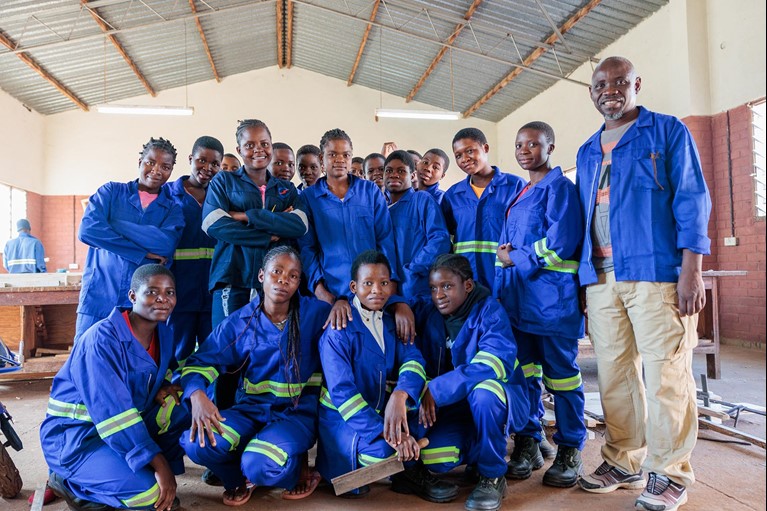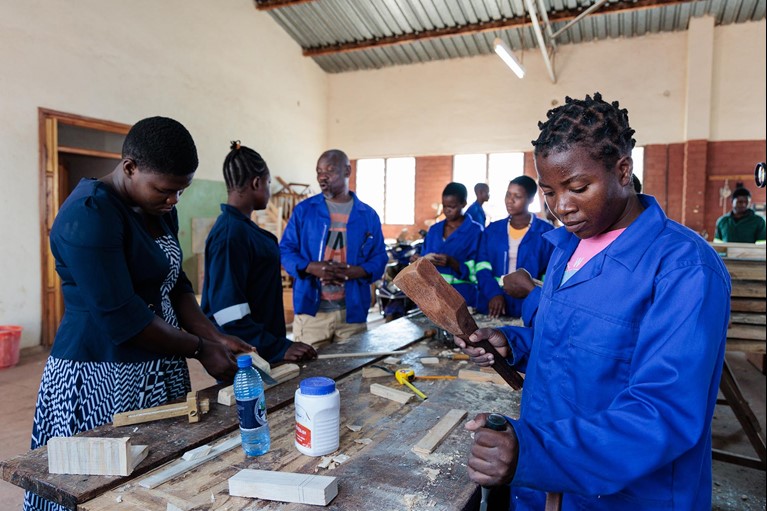Fighting poverty in Malawi
Nearly 90% of children in rural Malawi will not finish senior high school. Without the opportunity to finish their education, their future prospects are limited.
Fighting poverty in Malawi
Nearly 90% of children in rural Malawi will not finish senior high school. Without the opportunity to finish their education, their future prospects are limited.
"In my village, most people think that only men can be carpenters." - Memory
In Memory's community, women are expected to take care of household duties, which means their education are often not prioritised and their dependance on a husband is increased. This impacts their financial independence and also restricts the types of jobs they are able to pursue.
Patriarchal gender norms also mean that it is difficult for young women like Memory to break through into male-dominated industries, like carpentry.
Memory's parents like many in the community are subsistence farmers who depend on their crops for survival. Climate shocks and low agricultural productivity mean that poverty levels remain high in Malawi, particularly in rural areas like Memory's community.
This means that young women in Malawi have the pressure to take on household chores while also balancing this with their education. The reality is that the vast majority of girls who start primary and secondary school will not complete their education. In fact, only 21.9% of girls complete lower secondary school.
Many women enter into early marriage before they turn 18, which further limits their education opportunities.

Poverty and lack of education have a significant impact on women in Memory's community
Education
When girls are unable to finish their education, their employment prospects are limited.
Early marriage
Many girls drop out of school because of household responsibilities and early marriage.
Gender stereotypes
Women tend to work in more stereotypically low paying jobs due to lack of education.
"Many women in my community drop out from school because of lack of school fees, which leads to them to have early marriage and early pregnancy, which leads to more poverty."
Education can mean a path out of poverty
The vast majority of girls in Malawi will not be able to complete their education.
In Australia, all children must attend school until Year 10. In Malawi, nearly 80% of girls won't complete lower secondary school.
When children can't finish school, their ability to find employment becomes limited. They are more likely to enter into early marriage and have children younger, which further increases their likelihood of staying in poverty. This can trap many young girls in a cycle of poverty that can last for generations.
Malawi’s efforts in closing the gender gap require urgent improvements in schooling rates for girls at the upper secondary level, lowering maternal mortality rates, ending child marriages, and increasing the diversity of employment opportunities for women in the workforce.

Fighting gender inequality in Malawi
Nearly 80%
of girls won't complete lower secondary school.
42%
of girls are married before the age of 18.
70%
of people live below the poverty line.
You can be a partner in compassion today and help communities like Memory's build a better future
Leaia's Story
Meet Leaia, a mother of five in Samoa grappling with the challenges of accessing clean water for her children.
Ronita's story
See how Ronita from the Philippines is striving to go back to school to help create a better future for her children.
